Taiwan Institute for Governance and Communication Research (TIGCR) has held 2019 TIGCR International Conference on “Political Polarization: Perspectives of Governance and Communication” on October 25, 2019. This is a meaningful event, because it has been the first time for TIGCR to host an international conference since the foundation of TIGCR. We received many academic papers and supports of friends from the United States, Hong Kong, Singapore, Philippine and Taiwan.
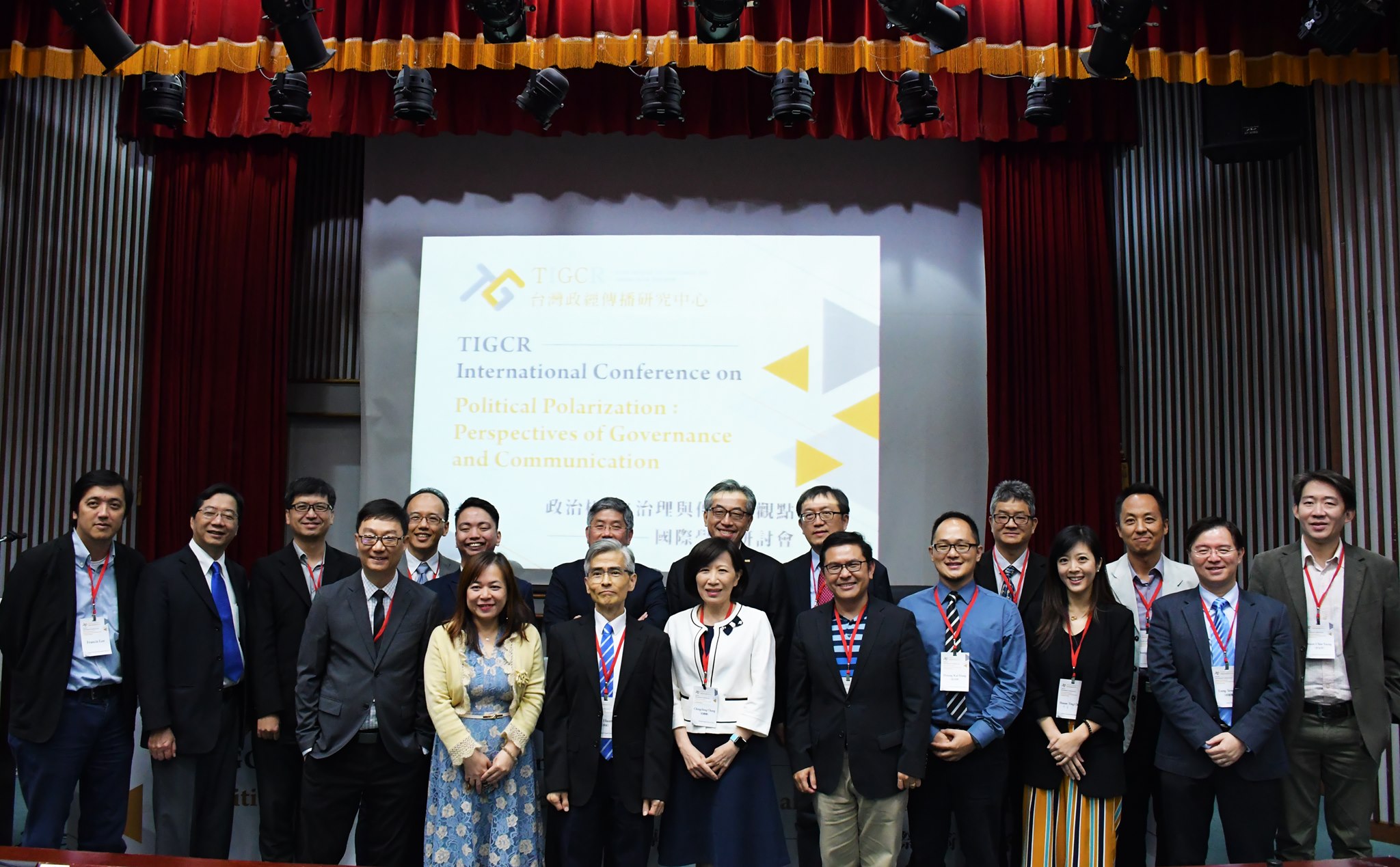
Group photo with all the panelists and scholars
(Photo credit: TIGCR)
The topic of this conference “Political Polarization: Perspectives of Governance and Communication” focuses on the phenomenon of public opinion polarization nowadays. By adopting the methods of public opinion poll, big data and content analysis, scholars from politics, communication and public administration shared the research results related to the issues of public opinion polarization and politics communication.
At the beginning of the conference, Professor Chi Huang, the director of TIGCR, gave the opening remarks “Governance and Communication in a Digital Age: the TIGCR Project”. Professor Huang indicated that TIGCR is devoted to connecting the government with people in the age of information overload. We hope to apply the research outcomes to political communication, social harmony, development of international politics and communication social network.
TIGCR focused on political polarization, interviewing the public and government officials last year. Professor Huang also announced that the resulted data, including TIGCR-PPS 2018 and TIGCR-TGBS 2018 would be published in Chinese and English on the same day of this conference. Because the data archive of TIGCR website has been combined with the function of Nesstar online analysis, we can not only see frequency distribution table directly on the website (https://tigcr.nccu.edu.tw/), but also use Nesstar to show cross tabulation and regression analysis.
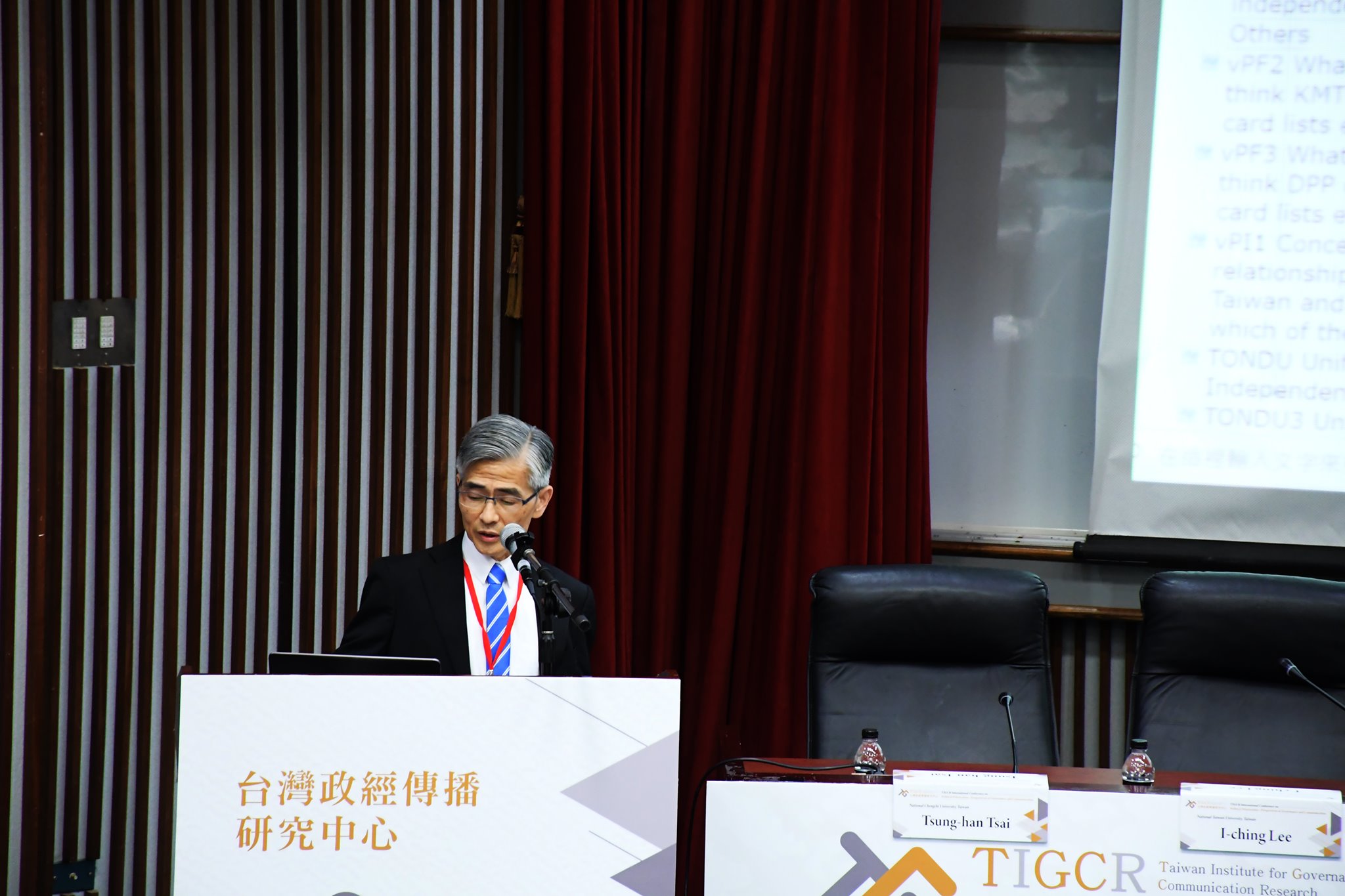
Professor Chi Huang, the director of TIGCR, gave the opening remarks
(Photo credit: TIGCR)
There are four panels in this conference. The first panel “Political Polarization, Public Opinion & Democracy” was hosted by Professor Chi Huang. The topic “Political Polarization in Taiwan and the United States: A Research Puzzle” was addressed by Professor Cal Clark from Auburn University, Professor Alexander C. Tan from University of Canterbury and Professor Karl Ho from University of Texas, Dallas. They mentioned the increasingly serious problems of political polarization in both Taiwan and the United States recently, and discussed its influence on the election. Professor Chia-Hung Tsai from National Chengchi University (NCCU) talked about “News Sources and Partisan Polarization: A Causal Mediation Analysis.” He analyzed the effects of social media on political polarization. It turns out that new media affects political attitude significantly. Presenters Professor Yi-Ching Hsiao from Tamkang University and Professor Chen-Hua Yu from National Chengchi University delivered the topic “Polarization Perception and Support for Democracy: The Case of Taiwan”. They did the research on Taiwanese people to understand whether Taiwanese people will lose faith in democracy because of party polarization.
The discussants Professor Shing-Yuan Sheng from National Chengchi University, Professor I-Ching Lee from National Taiwan University and Professor Tsung-Han Tsai from National Chengchi University offered informative feedback, and had the fruitful discussions with presenters.
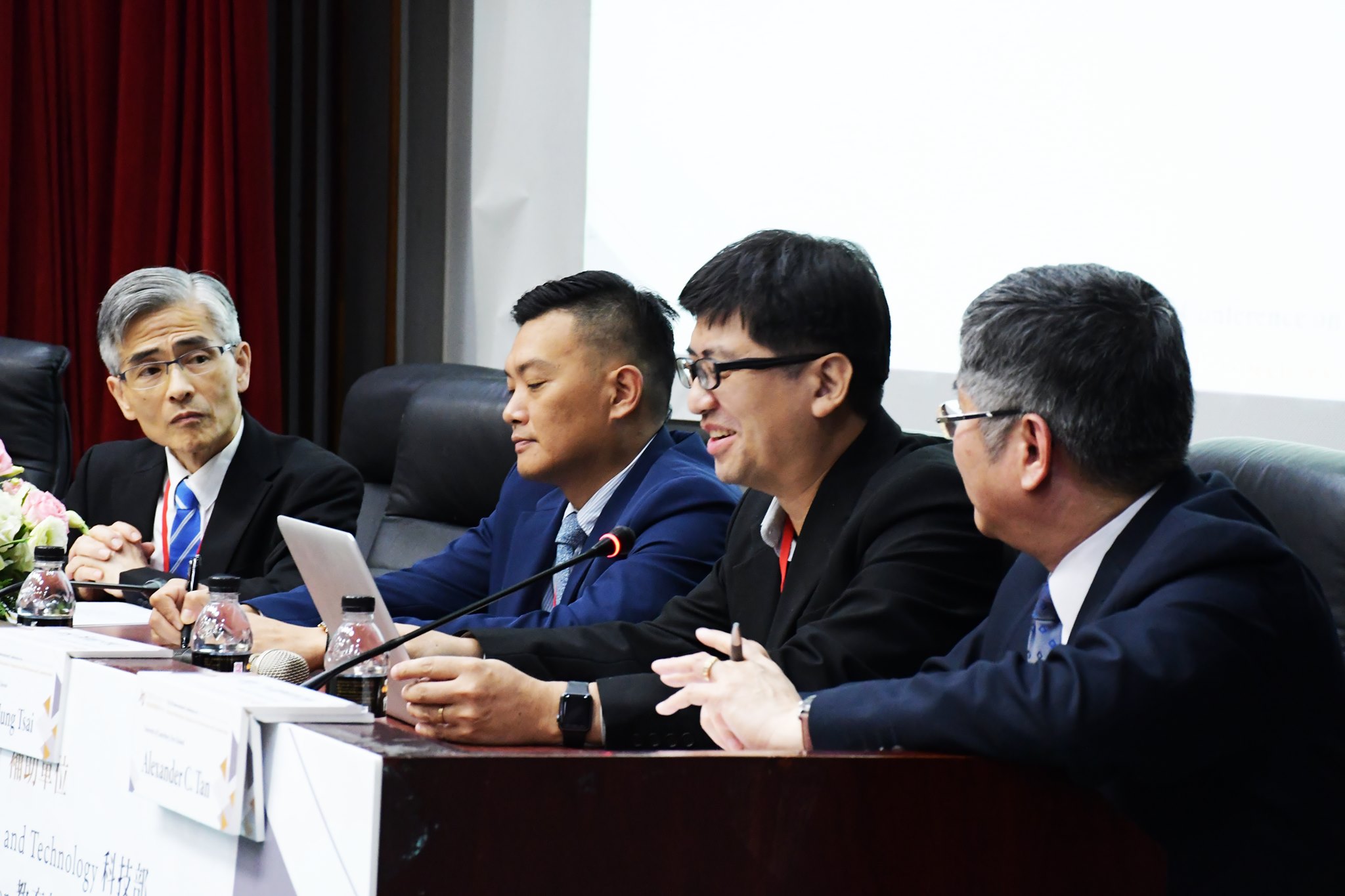
Panelists presented the research papers
(Photo credit: TIGCR)
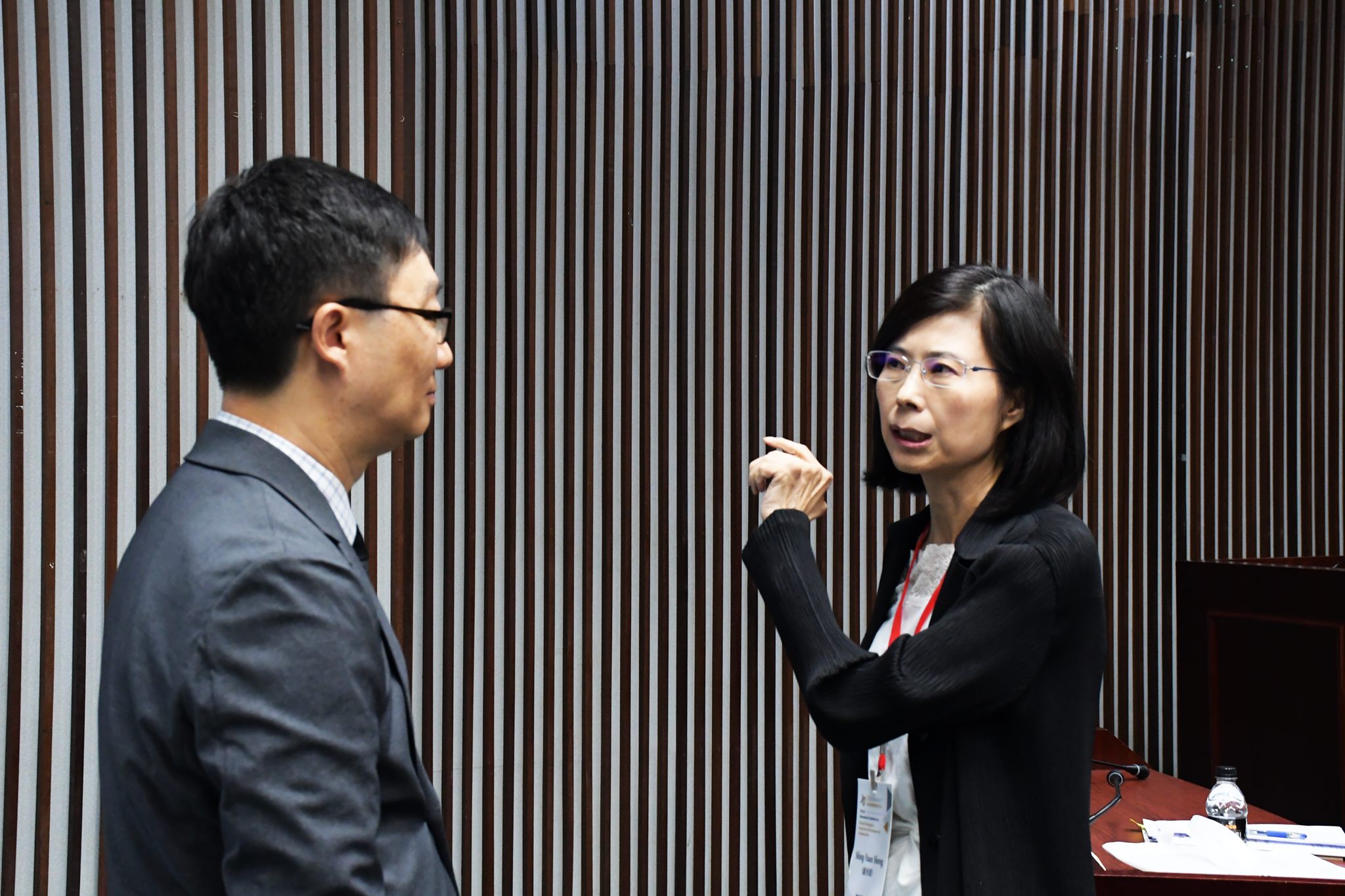
Communications between the scholars
(Photo credit: TIGCR)
The second panel “Social Media Use, Political Participation & Civic Engagement” was hosted by Professor Ang Peng Hwa from National Technological University. The topic “Political Polarization in Taiwan: Implications for Interactive Political Communication and Participation” was addressed by NCCU Professor Ching-Ching Chang, who is also the associate director of TIGCR and Postdoctoral Researcher Yen-Cheng Chen. They divided Taiwanese people into five types of political polarization, and analyzed the disparities between Taiwanese people’s participation in social media and political activities. Professor Francis L. F. Lee from The Chinese University of Hong Kong observed the behaviors of students in Hong Kong. He talked about “Social Media and Protest Attitudes during Movement Abeyance: A Study of Hong Kong University Students”, discussing how social media pushes people to protest during suspension of social campaigns. Professor Hsuan-Ting Chen from The Chinese University of Hong Kong and Professor Jhih-Syuan Lin from National Chengchi University delivered the topic “How Does Political Discussion On Social Media (De)Mobilize Political Participation? The Role of Cross-Cutting and Like-Minded Discussion, Political Ambivalence and Issue Importance”. They analyzed how different political dialogues affect political participation.
The discussants Professor Ching-Hsin Yu from National Chengchi University and Professor I-Ching Lee from National Taiwan University offered their reflections on three articles from various perspectives, discussing the research outcomes with the presenters.
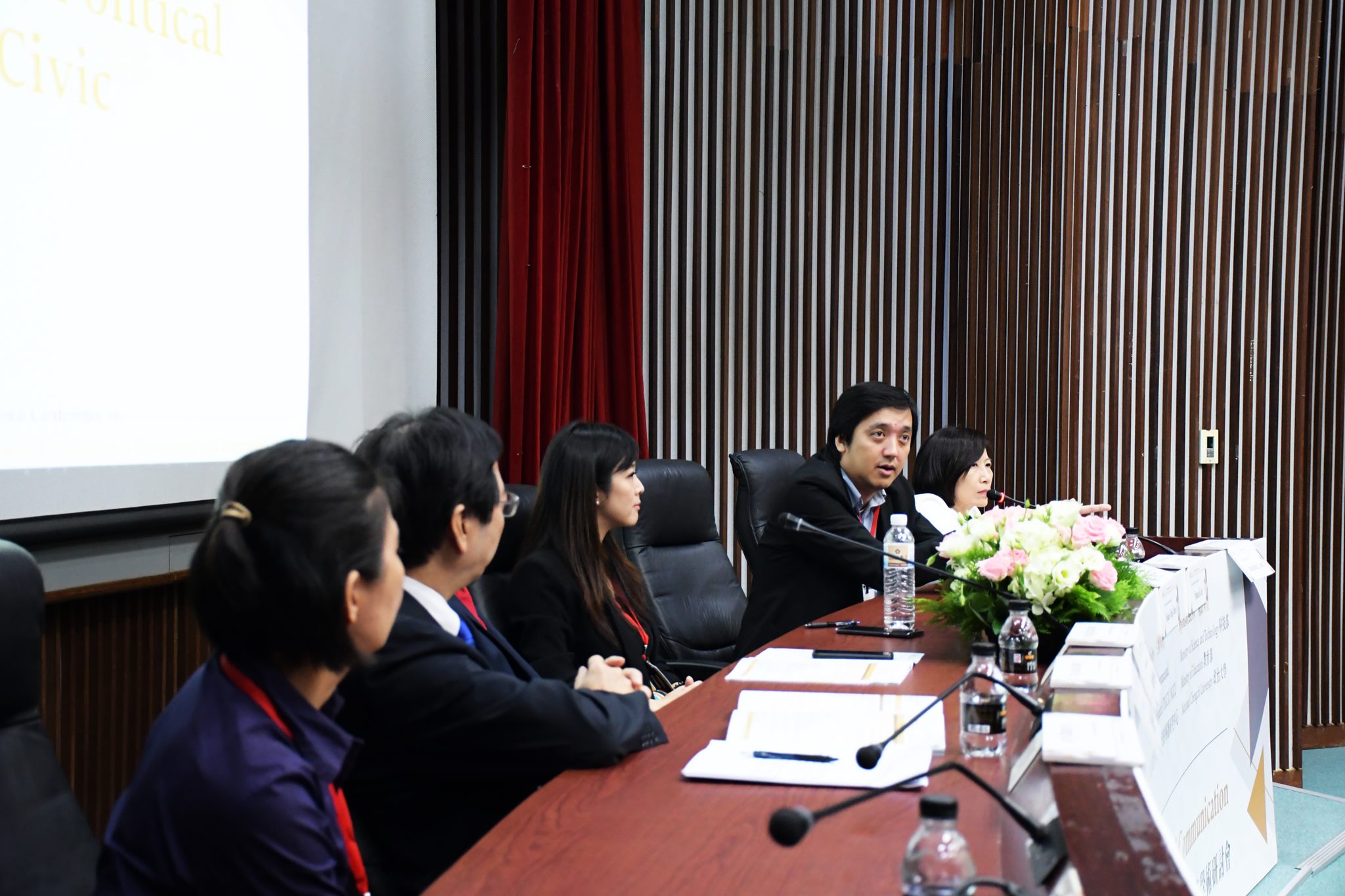
Panelists presented the research papers
(Photo credit: TIGCR)
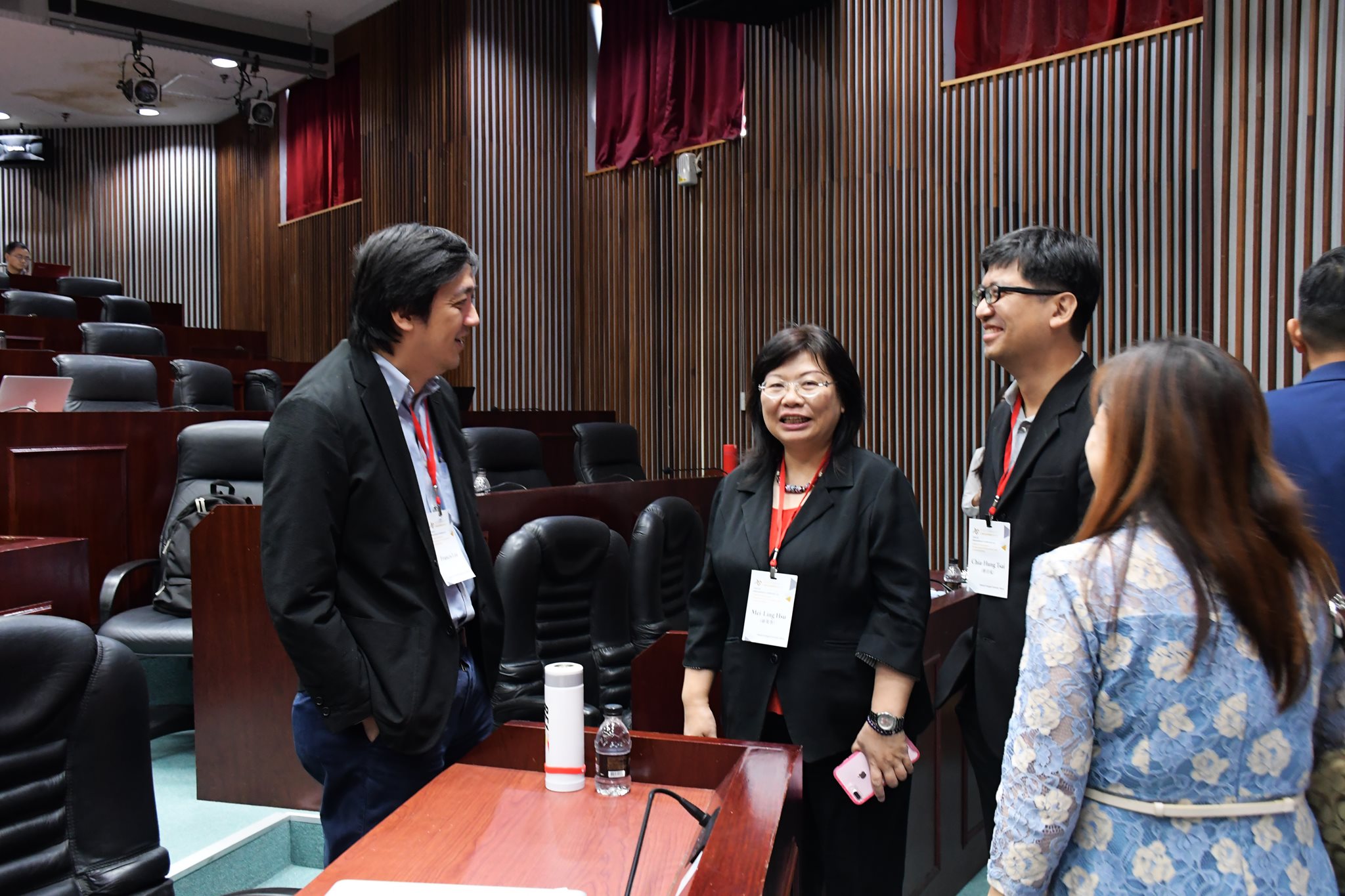
Communications between the scholars
(Photo credit: TIGCR)
The third panel “Digital Governance, Big data & Algorithm” was hosted by Researcher Chung-li Wu from Academia Sinica. Professor Ang Peng Hwa from Nanyang Technological University addressed the topic “The Ethics and Governance of Artificial Intelligence”. He talked about Artificial Intelligence and moral issues based on the essence of ethic. The topic “Professor Trisha T.C. Lin from National Chengchi University delivered the topic “News Framing and Sentiment Analysis of Go Green with Nuclear during 2018 Taiwanese Referendum”. She pointed out how selection mechanism of algorithm affects political participation of the public by representing heterogeneous points of view. Eventually, the topic Professor Charles Erize P. Ladia from University of the Philippines Diliman shared with us is “Crafting Presidential Exigences: A Rhetorical Analysis of the Exigences Narrated by President Rodrigo Duterte in Shaping Public Opinion on Philippines’ Federal Shift”. He analyzed how the President of the Philippines’ rhetoric influences and shapes public opinions. We invited Professor Francis L. F. Lee from The Chinese University of Hong Kong and Professor Chih-Hui Lai from National Chiao Tung University to be our discussants. They shared their research experiences in the communication field with presenters.
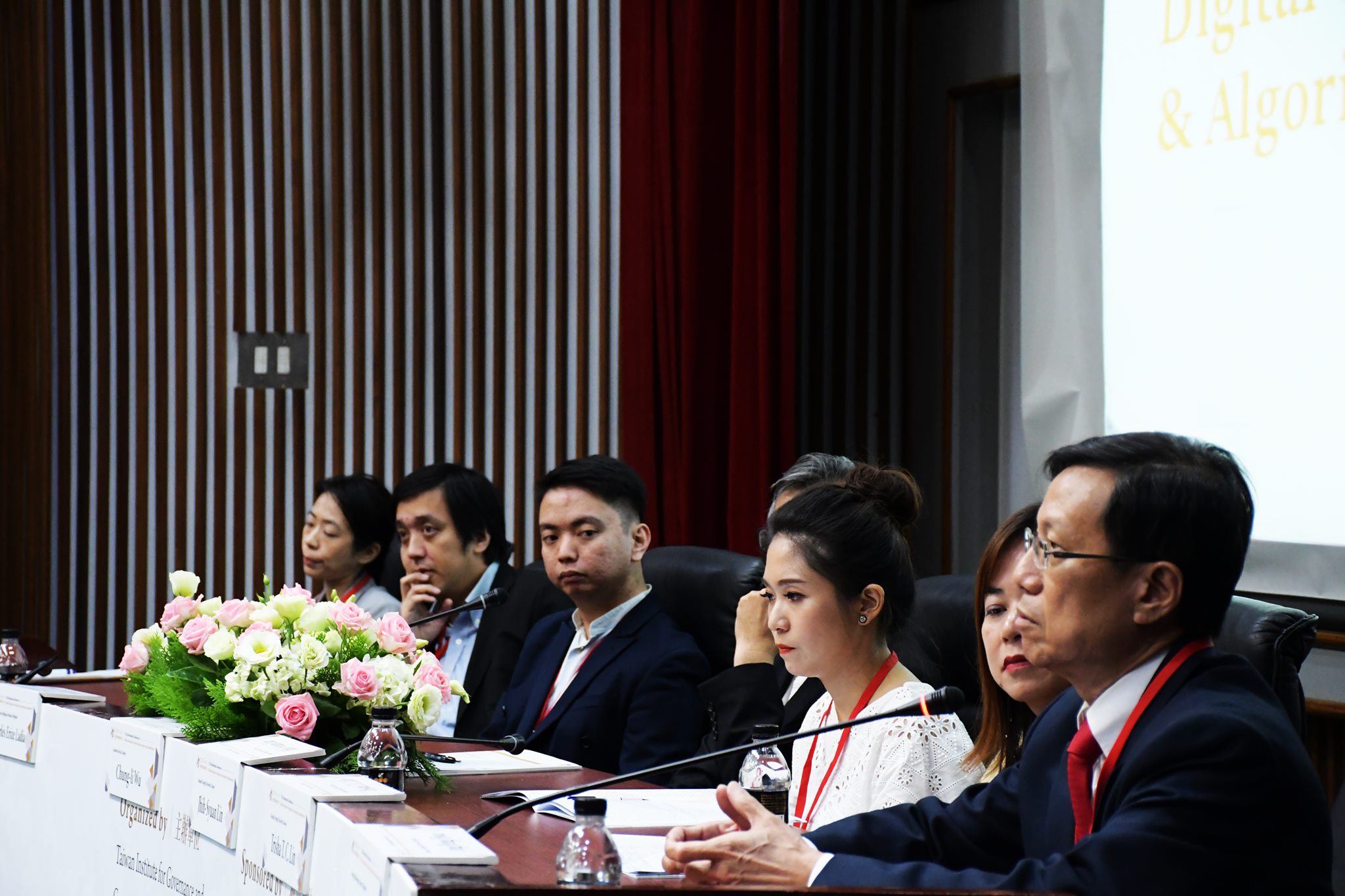
Panelists presented the research papers
(Photo credit: TIGCR)
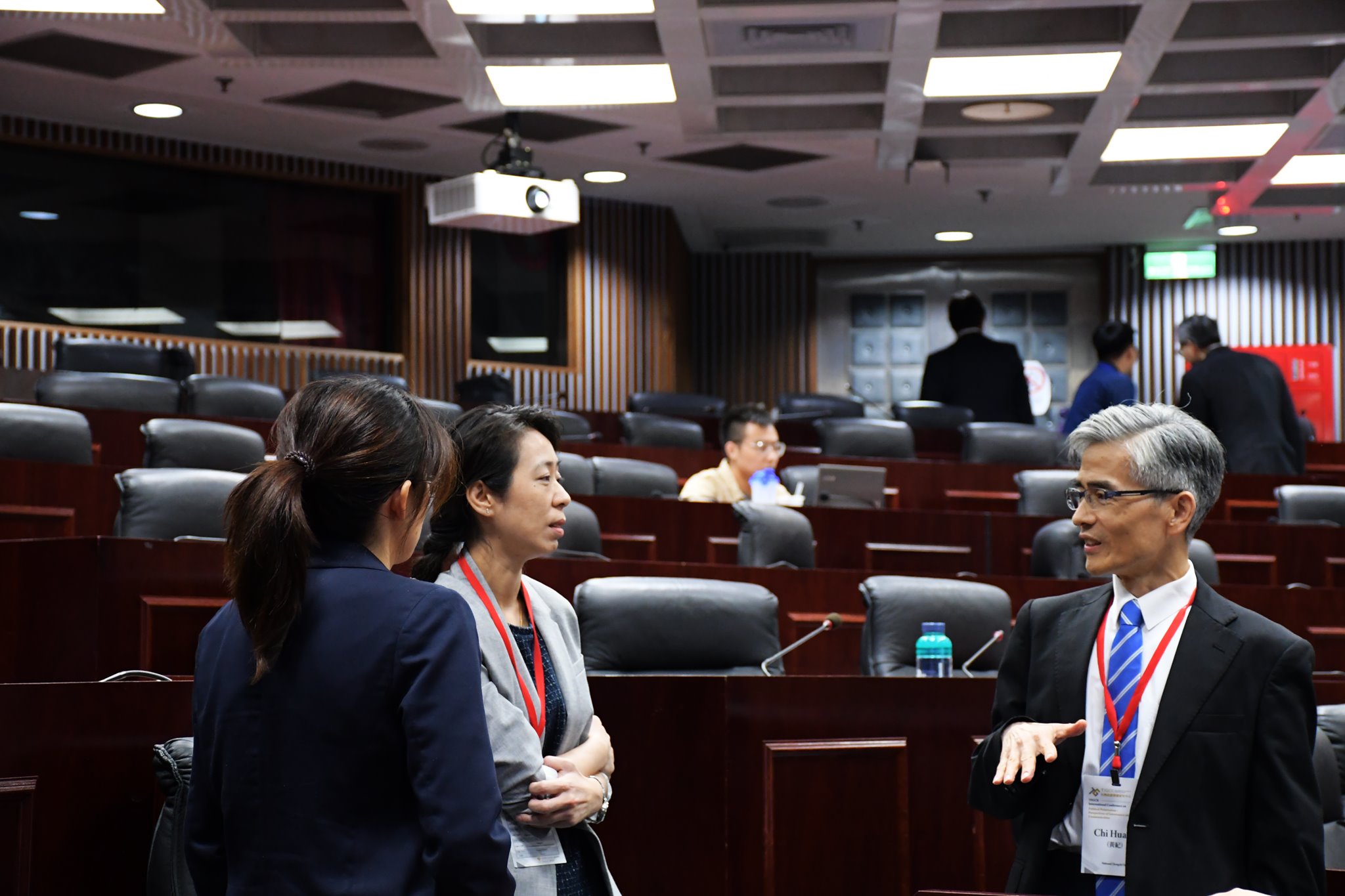
Communications between the scholars
(Photo credit: TIGCR)
The fourth panel “Civil Servants, Bureaucratic Assessment & Trust” was hosted by Professor Alexander C.Tan from University of Canterbury. Professor Hsiang-Te Liu from Ming Chuan University and Professor Don-Yun Chen addressed the topic” Can Public Service & PSM neutralize Political Polarization? A Comparative Study on Taiwan's Citizen and Public Servants”, and talked about how the citizens’ and government officials’ perspectives on pension reform and racial ideology affect polarizing policies. Professor Hsiang-Kai Dong from National Chengchi University and Professor Chung-An Chen from Nanyang Technological University delivered the topic “How Regret the Civil Servants Are? The Impacts of Civil Service Pension Reform on Public Servants’ Morale”, revealing the pension reform’s influence on the motivation of public service and different levels of government officials. Finally, Professor Zhou-Peng Liao from National Open University addressed the topic “Bureaucratic Values and Responsiveness: An Empirical Assessment”. He demonstrates how bureaucratic values affect cognition, discretion and bureaucratic responsiveness. Director Chi Huang, Professor Lung-Teng Hu from National Taipei University and Professor Kuan-Chiu Tseng from National Taiwan Normal University were invited to be the discussants. They discussed three articles with presenters, providing educated comments.
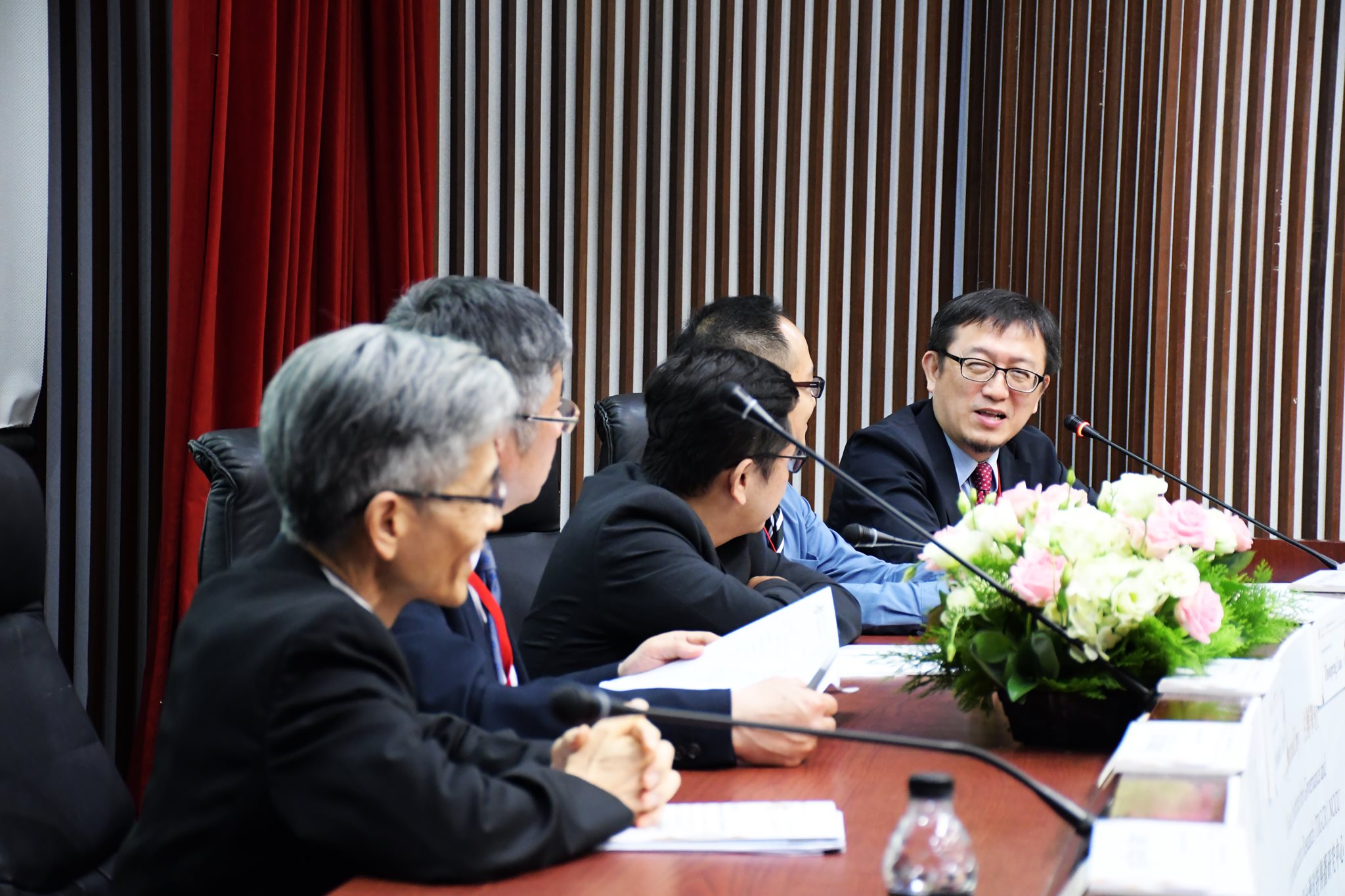
Panelists presented the research papers
(Photo credit: TIGCR)
Lastly, Director Chi Huang’s closing remarks drew 2019 TIGCR International Conference on “Political Polarization: Perspectives of Governance and Communication” to a perfect end. He announced that 2020 TIGCR International Conference on “Political Polarization: Perspectives of Governance and Communication” would be held on October 30th, 2020, and TIGCR committee is looking forward to seeing every guest again.

Group photo with the panelists and scholars
(Photo credit: TIGCR)
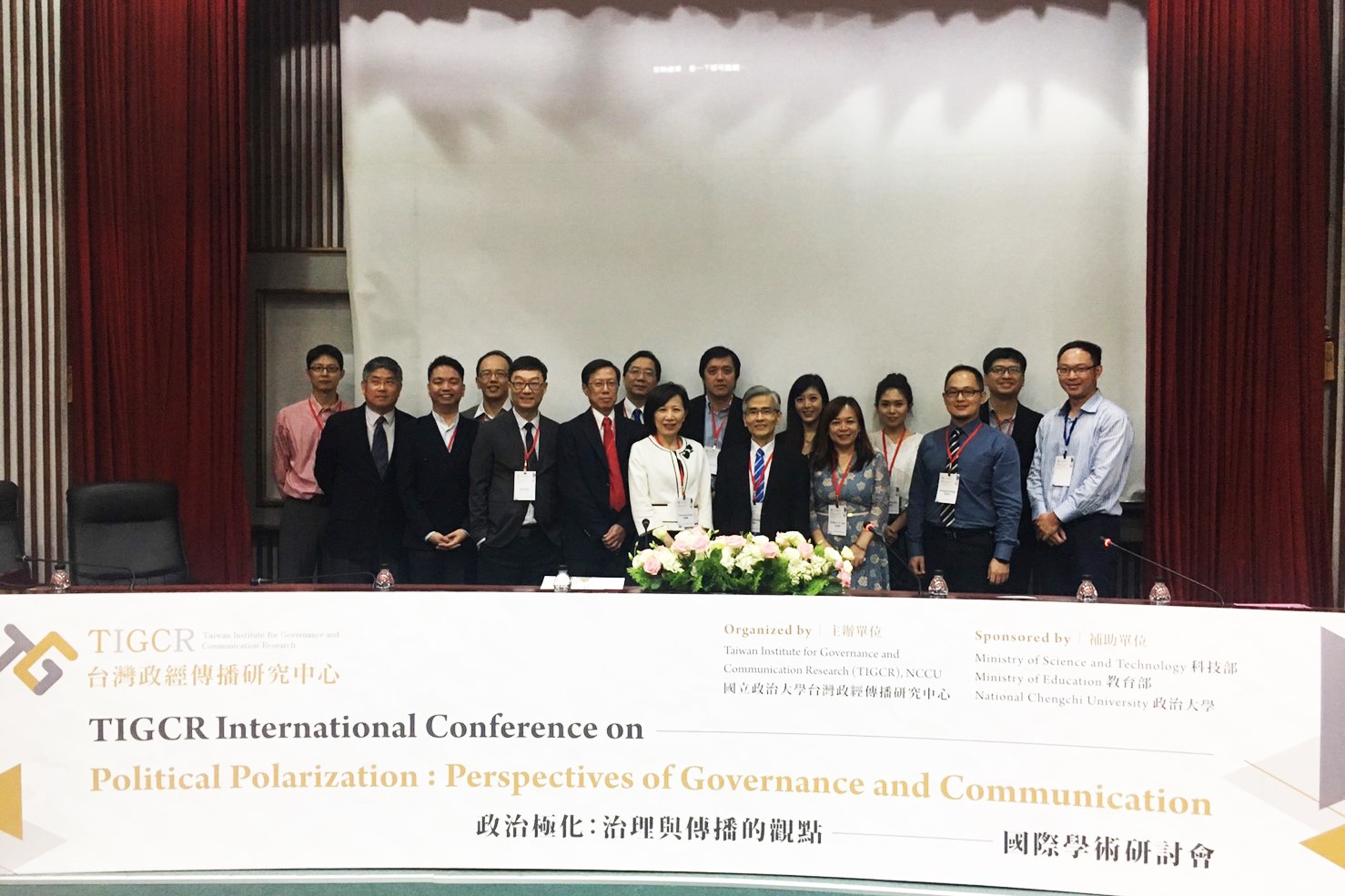
Group photo with the panelists and scholars
(Photo credit: TIGCR)





